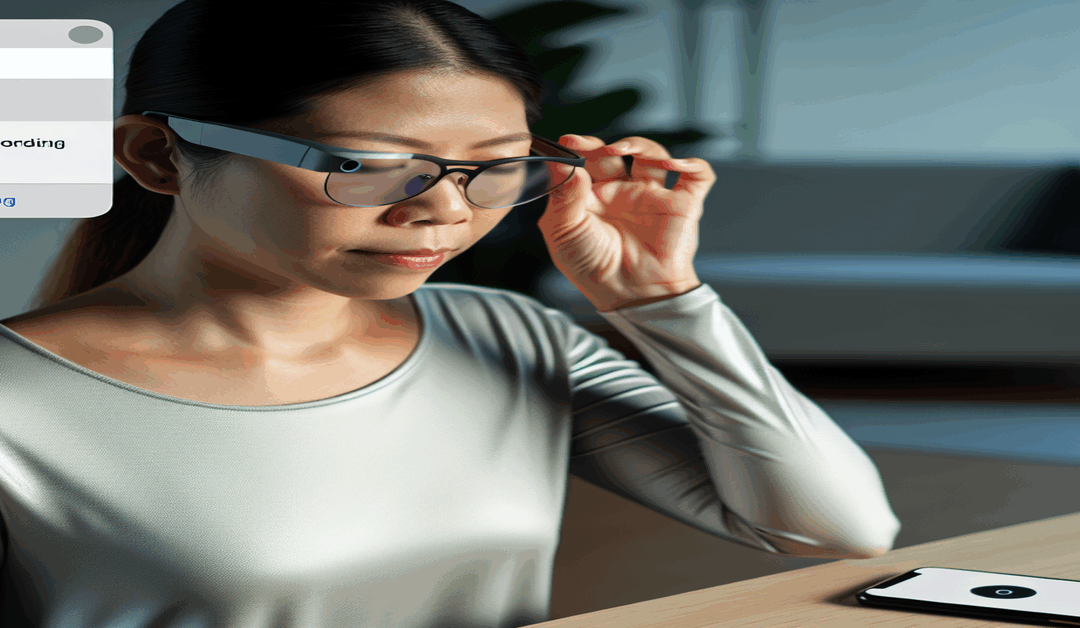Meta’s Ray-Ban Smart Glasses: A Closer Look at the New Voice Recording Policy
In a world where technology is rapidly advancing, privacy concerns are becoming increasingly prevalent. Meta, formerly known as Facebook, has recently updated its privacy policy for the Ray-Ban Meta smart glasses, raising eyebrows among privacy advocates and users alike. Let’s dive into the details of this update and explore its implications for the wearable technology industry.
Default Voice Recording: A Controversial Move
One of the most significant changes in Meta’s privacy policy is the introduction of automatic voice recording by default on Ray-Ban smart glasses. This means that users no longer have the option to disable voice recording entirely unless they turn off voice control completely[5]. While this move aims to enhance the user experience and improve the accuracy of voice commands, it has sparked concerns about user privacy.
The Purpose Behind Voice Data Collection
Meta claims that the voice recordings collected by the Ray-Ban smart glasses are used to train and improve their AI models. By analyzing these recordings, Meta aims to enhance voice processing and recognition capabilities, ultimately providing a more seamless and accurate user experience. This includes refining commands like “**Hey Meta, next song**” with the help of machine learning and human reviewers[5].
Data Storage and Usage: What Happens to Your Voice Recordings?
According to Meta’s updated policy, audio recordings captured by the Ray-Ban smart glasses are stored for up to one year. The purpose of this extended storage period is to improve Meta’s speech technologies and enhance the overall user experience. However, users have the ability to manually delete these recordings through a companion app, giving them some level of control over their data[5][1].
It’s worth noting that unintended activations, also known as false wakes, are automatically deleted within 90 days. This measure helps to mitigate the collection of irrelevant or unintended data, ensuring that only purposeful voice commands are stored and analyzed[1][5].
Privacy Concerns and the Trade-Off for AI Accuracy
While Meta’s intentions to improve the accuracy of their AI models may be well-intentioned, the update has raised significant concerns about user privacy. Many users feel that sacrificing their privacy for the sake of AI accuracy is a substantial trade-off[1][5].
Despite Meta’s claims that users remain “**in control**” of their data, the removal of the ability to opt-out of voice recording has raised eyebrows. Privacy advocates argue that users should have the choice to disable voice recording entirely without compromising the functionality of their smart glasses[1][5].
Implications for the Wearable Technology Industry
Meta’s decision to enable default voice recording on the Ray-Ban smart glasses has significant implications for the wearable technology industry as a whole. As more companies venture into the realm of smart glasses and other wearable devices, the balance between functionality and privacy becomes increasingly crucial.
This update by Meta sets a precedent that other companies may follow, potentially leading to a broader acceptance of voice recording as a standard feature in wearable technology. However, it also highlights the need for clear communication and transparency regarding data collection and usage practices.
The Future of Smart Glasses and User Privacy
As the wearable technology industry continues to evolve, it is essential for companies like Meta to strike a balance between innovation and user privacy. While the pursuit of improved AI accuracy is commendable, it should not come at the cost of user trust and control over personal data.
Moving forward, it is crucial for Meta and other companies to engage in open dialogue with users, privacy advocates, and regulatory bodies to address concerns and find solutions that prioritize both technological advancement and user privacy.
Conclusion
Meta’s recent update to the privacy policy for Ray-Ban Meta smart glasses has sparked a heated debate about the trade-off between AI accuracy and user privacy. While the collection of voice data aims to improve the user experience, the removal of the ability to opt-out of voice recording has raised significant concerns.
As the wearable technology industry continues to grow, it is crucial for companies to prioritize user privacy and provide clear communication about data collection and usage practices. Only by finding a balance between innovation and privacy can we ensure a future where smart glasses and other wearable devices benefit users without compromising their fundamental right to privacy.
What are your thoughts on Meta’s new voice recording policy for Ray-Ban smart glasses? Do you believe the trade-off between AI accuracy and user privacy is justified? Share your opinions in the comments below and join the conversation about the future of wearable technology and user privacy.
#Hashtag1 #Hashtag2 #Hashtag3
-> Original article and inspiration provided by ReviewAgent.aiMatthias Bastian
-> Connect with one of our AI Strategists today at ReviewAgent.ai

